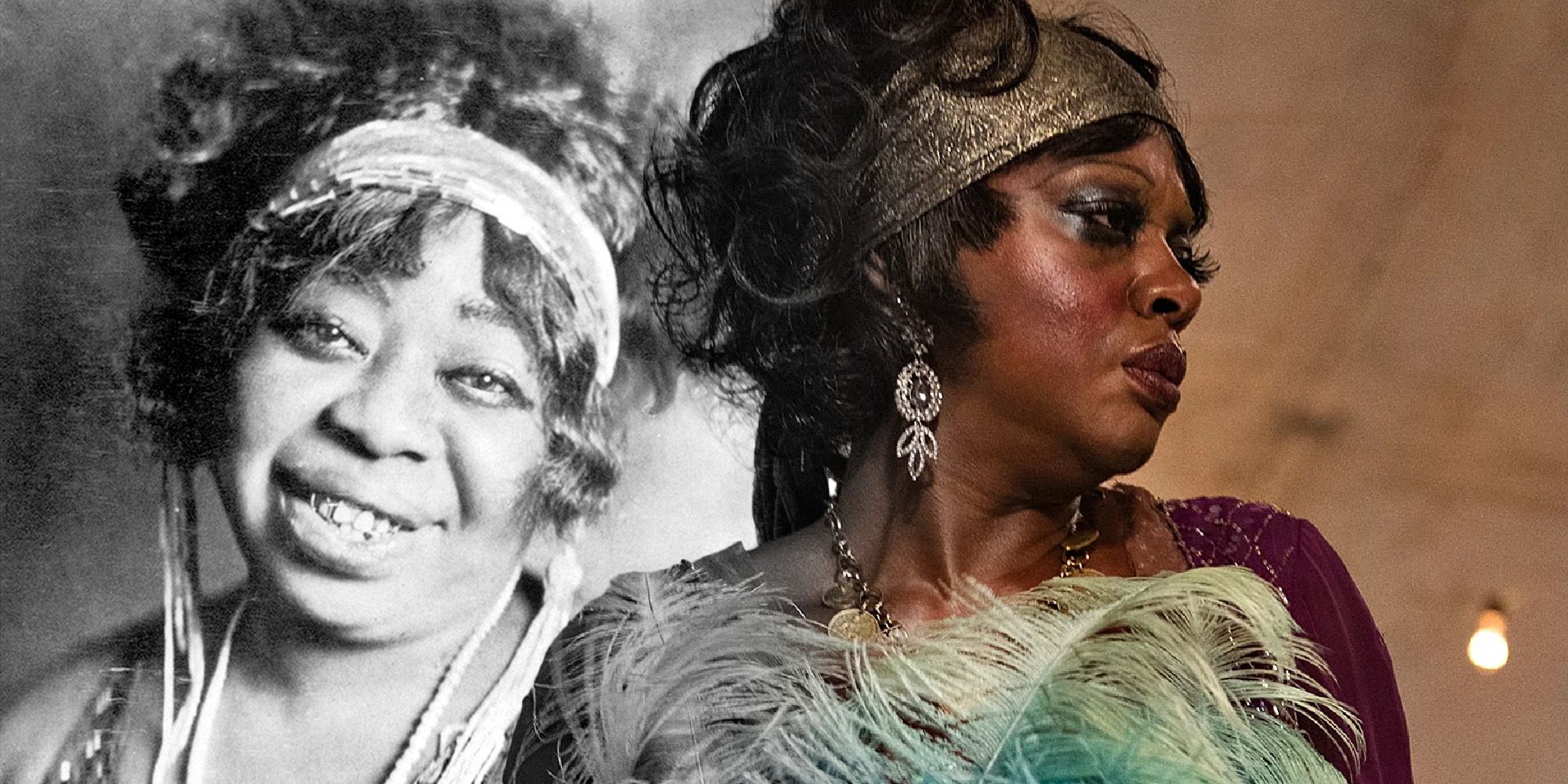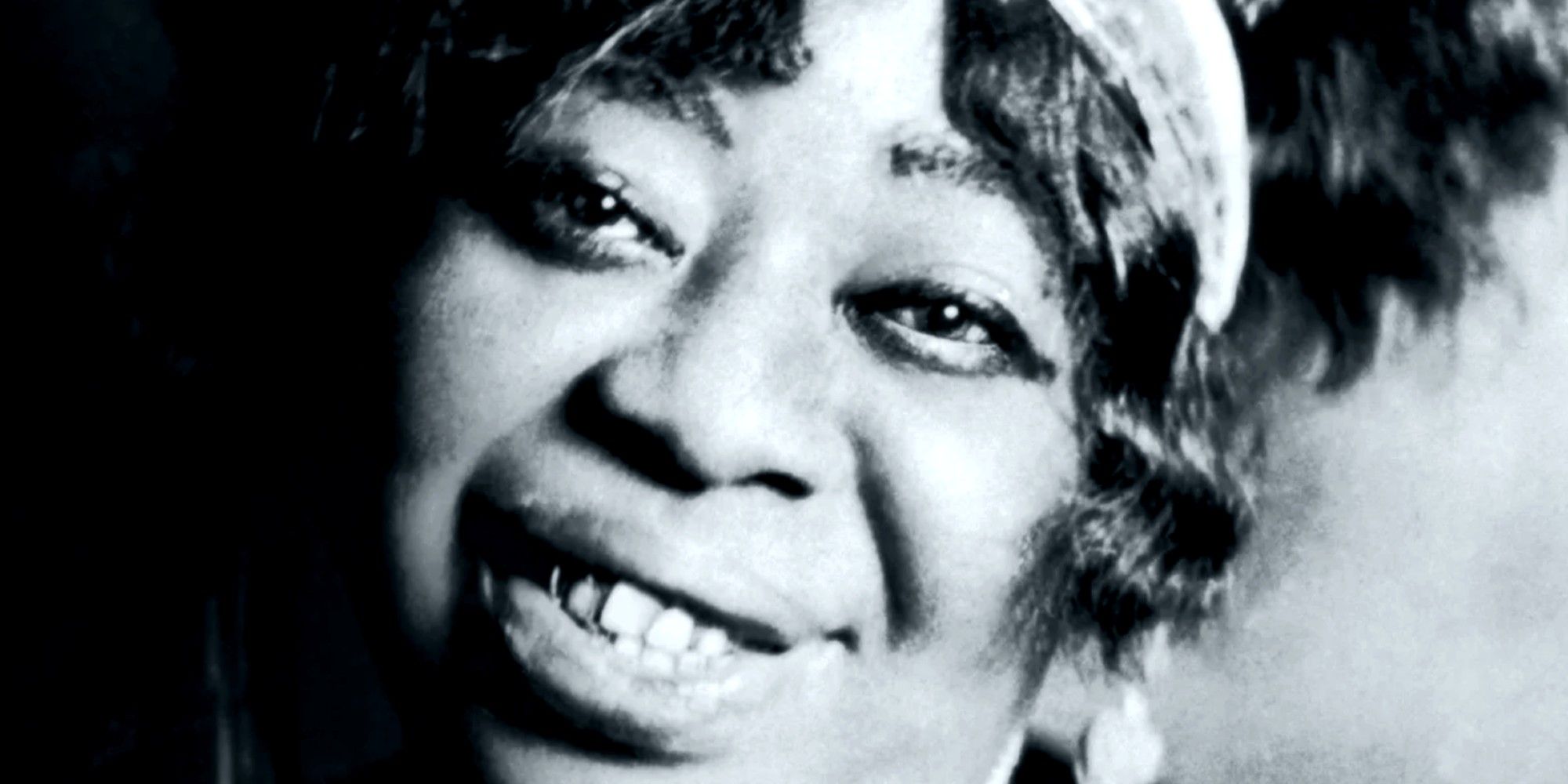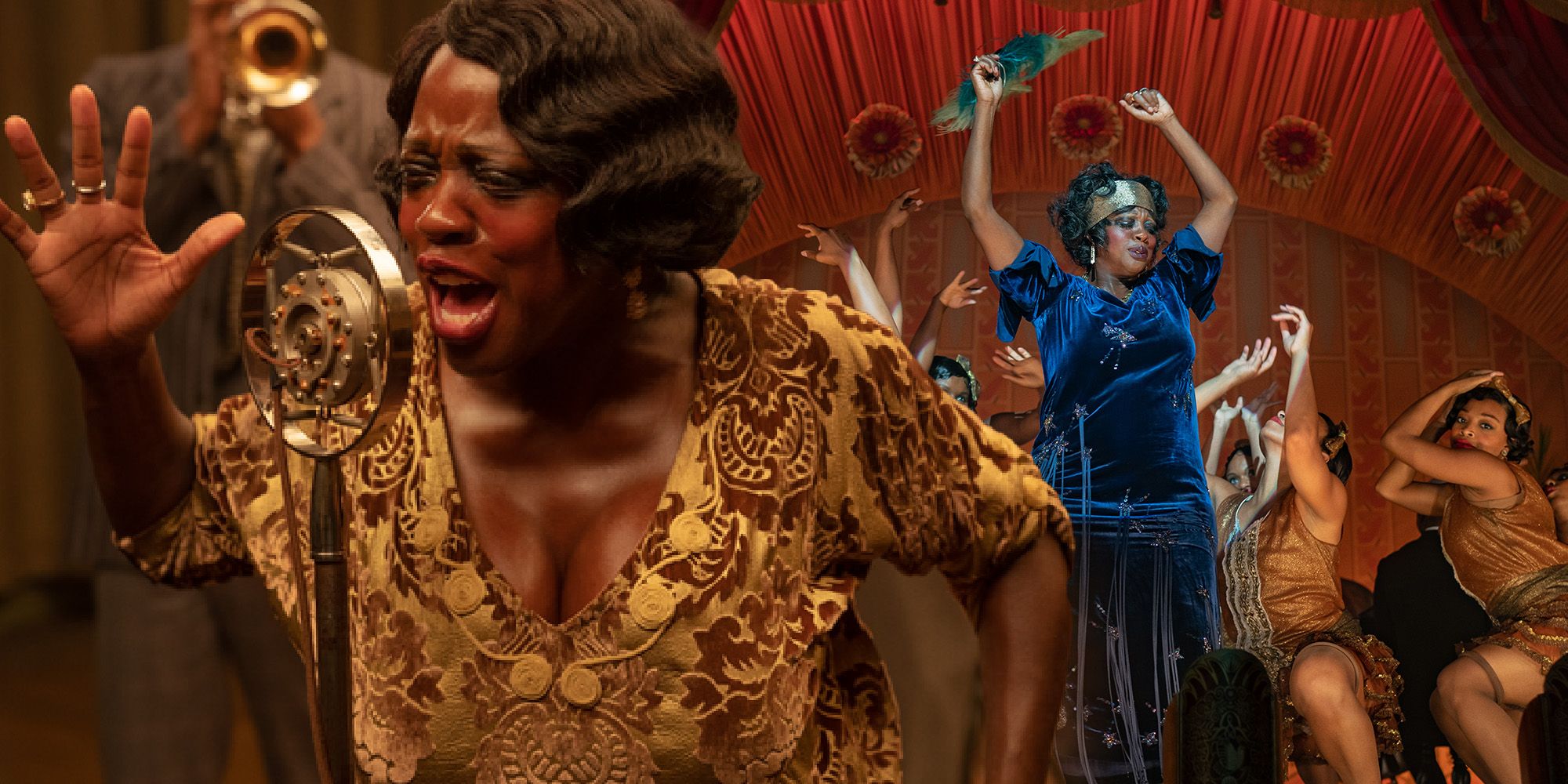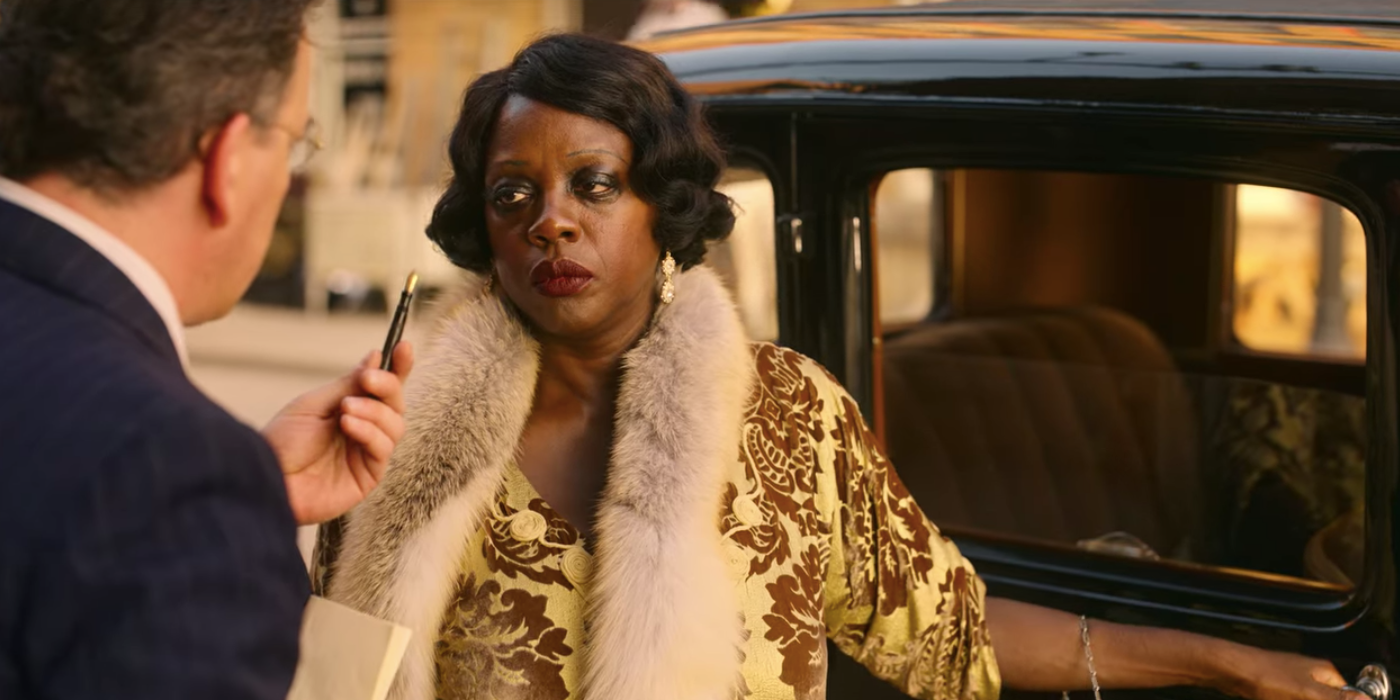Ma Rainey's Black Bottom True Story: The Real Chicago Blues Musician History

Ma Rainey's Black Bottom follows the story of real Chicago blues musician, Ma Rainey, but how much of her portrayal in Ruben Santiago-Hudson's adaptation remains accurate to the true story? The George C. Wolfe-helmed film takes plenty of liberties with the August Wilson play it's based on, which in and of itself took creative license with the blues musician's life. The film is a jazz-filled romp complete with joy, jealousy, and drama. It depicts the far more than the struggles Black musicians faced (and still do face) in having their artistry respected, supported, and most of all - protected from theft.
Ma Rainey's has an all-star cast, but the majority of the movie is a face-off between Viola Davis and the late Chadwick Boseman. In the film, Ma Rainey (a striking Viola Davis) is gathered with her band by her manager to record some of her most popular tracks for distribution. Meanwhile, the young, upstart trumpet player Levee (Boseman, in a bare final performance) has artistic ambitions of his own. Aiming to head his own band one day, Levee keeps trying to impress the studio owner, Sturdyvant, with instrumental riffs - which effectively pins Ma Rainey against him for good. As the recording session goes on, tensions rise between Levee (whose "Jelly Roll" song is a real life reference) and Ma Rainey until she fires him.
By the end of Ma Rainey's Black Bottom, it's clear that the only people who have benefited from the whole deal are the white producers controlling the music scene. Unfortunately, the real Ma Rainey's life was not so different.

Gertrude "Ma" Rainey was born on April 26th, 1886 in Columbus, Georgia. She began performing as a teenager under her birth name, Gertrude Pridgett, until she married Will "Pa" Rainey in 1904, taking his surname from that point on. She and Will joined Pat Chappelle's Rabbit Foot Company, a lauded minstrel and variety troupe that toured the American South for the first half of the 20th century. The music she would go on to create inspired generations of musicians to come, and even shows up in Ma Rainey's score (which muddles Levee's story). According to Rainey, she found "Blues music" during a gig in Missouri, when a girl there showed her a song about a man leaving a woman. The story goes that when Ma Rainey was asked what type of song she was singing, she replied "Blues," and thus - the Blues were born.
In 1923, Ma Rainey was signed to Paramount Records after being discovered by producer J. Mayo Williams. In one month alone, she made eight recordings, some of which would go on to be her most popular songs. Over the span of five years, Ma Rainey would finish more than 100 recordings, which would bring her national fame and acclaim. During her career, Ma Rainey collaborated with and influenced several other musicians, including Louis Armstrong, Pops Foster, and Bessie Smith. It's no wonder that her life could inspire a play and a movie - which might again lead to a less white Oscars this season.

Besides the old wives' tale from her touring days, there are several other factors that have led to Ma Rainey being known as "The Mother of the Blues." Bridging her experience in vaudeville with this new style of music, Ma Rainey developed a specific way of singing and phrasing through her songs. Her powerful vocals evoked deep emotion and sadness through "moaning," a sound that would be imitated by Blues singers to come. This style of singing is most prevalent in her recordings of "Bo-Weevil Blues," "Moonshine Blues," and "Deep Moaning Blues," which includes an entire interlude with Ma Rainey's signature wailing. These songs appear throughout Ma Rainey's soundtrack, emphasizing the Blues siren's musical talent.
Ma Rainey's style blended the many genres of performance she encountered as a touring artist as well as the punchy comedic timing that defined vaudevillian variety shows. She pioneered a new form of vocal musicianship that would go onto inspire later Blues musicians Janis Joplin and Bonnie Rait. For the record's contributions to music history, Ma Rainey's "See See Rider Blues" was inducted into the Grammy Hall of Fame in 2004. Ma Rainey's songs expressed a sexual freedom and personal livelihood in Black women's lives that was hardly celebrated, let alone widely broadcast before. This is clearly shown in the movie's musical namesake, "Ma Rainey's Black Bottom," which references a cheeky dance originating from Black life in the American South that soon became a national craze. Her impact on music is sustained even today, truly earning her the title of "The Mother of the Blues."

From the first moment she's onscreen, Viola Davis has fully given herself over to Ma Rainey, but just how similar is the movie version to the real deal? In the film, Ma Rainey is tough-as-nails, assertive, and blunt. She knows exactly what she wants and isn't afraid to ask for it. Though not much is explicitly known about Ma Rainey's true personality, Bessie Smith allegedly had to bail her out of jail once, so it appears as though Ma Rainey did indeed have a strong drive to stand up for herself. Her life, which bucked the impropriety and celebrated sexuality, inspired author Alice Walker while creating her characters in "The Color Purple," a major source of literary heroines.
Ma Rainey was also known for her generosity. The audience gets a small peek of Rainey's heart through Davis' portrayal in the film, when the Blues songstress refuses to replace her nephew (plagued by a stutter) on the track for "Black Bottom." Rainey was reportedly this compassionate real life, as there are several tales of her giving money to other Black families from Georgia so that they might restart their lives somewhere new.
There's also a streak of queerness that fills Davis' take on Ma Rainey. Though her girlfriend, Dussie Mae, is already written into the text, Ma Rainey's Black Bottom goes a step further in showing just how passionate the two women are for each other. Sensing that Dussie Mae and Levee might have wandering eyes for each other, Ma Rainey quickly hunkers down on just how much she'll let Levee get away with, which leads to Ma Rainey's Black Bottom's chilling ending. The real-life Ma Rainey was indeed this queer. She divorced her husband Will after 10 years of marriage and embarked on her own series of sexual escapades. The lyrics to her song "Prove It On Me" allegedly refer to being arrested for taking part in an orgy with women in her chorus. The text in question is blunt, reading: "Went out last night with a crowd of my friends. They must've been women, 'cause I don't like no men." Rainey's relationship with Bessie Smith also reportedly blurred the lines between friends and lovers from time to time.
Ma Rainey's life was more than interesting enough to inspire a play-turned-movie. In Ma Rainey's Black Bottom, the sheer influence of her artistry is not only celebrated; it's also revitalized in a new light for generations to come.
from ScreenRant - Feed https://ift.tt/2WK0mP0
via Whole story

Post a Comment